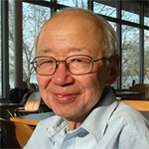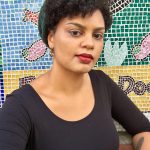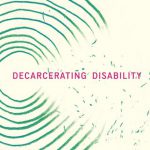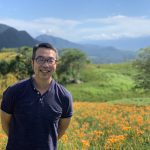
All lectures are presented fully online via Zoom every Friday at 3:30 PM. The link to join the meeting is https://go.wisc.edu/l880yf except when otherwise indicated. Brown bag sessions start at noon on the days there are speakers. Alumni, friends and the public are always invited to attend.
Spring 2022 Lectures

February 18th – The Underneath of Home: Settler Homemaking as ‘Veritable Apocalypse’
Esme G. Murdock, San Diego State University

March 25th – From Urban Resilience to Climate Justice
Kian Goh, University of California-Los Angeles
Kian Goh speaks about her new book, Form and Flow: The Spatial Politics of Urban Resilience and Climate Justice (MIT Press 2021). The book examines the politics around climate change response strategies in three cities and the mobilization of grassroots activists to fight the perceived injustices and oversights of these plans. Goh explores initiatives such as Rebuild By Design in New York, the Giant Sea Wall masterplan in Jakarta, and Rotterdam Climate Proof, and discovers competing narratives, including community resiliency in Brooklyn and grassroots activism in the informal “kampungs” of Jakarta.

April 1st – Getting to Know Feminist Data Natures
Ingrid Nelson, University of Vermont
This talk introduces an emerging feminist digital natures (FDN) approach in collaboration with Roberta Hawkins and Leah Govia, connecting feminist digital geographies, feminist political ecology, and digital natures research. Nelson will offer examples of work on more-than-human care with social media and from a digital ‘outer space exploration’ game to highlight key FDN questions, methods, and pedagogical approaches. Nelson will also briefly discuss the early stages of a new collaborative feminist digital gaming project.

April 8th – Sustainability Science and Policy: Lessons from Theory to Practice
Sherburne B. Abbott, Syracuse University
Sustainability science is a relatively new, interdisciplinary field focused on the challenge of sustainable development. With improved understanding of the dynamics of human-environment systems, is it possible to make knowledge-based decisions that alter development pathways to achieve sustainable outcomes? This talk will trace the emergence of the field and the building of bridges between the disciplines, between the issues (such as climate and energy), and between science and policy—providing some examples from federal and state government and academia to show why this is so hard and why we need a whole new generation of sustainability scientists!

April 15th – On Safe Harbors, Worlding Education, ,and Transnational Black Feminist Geographies in the Early Twentieth Century
Mae Miller, University of California-Berkeley
This talk builds upon recent calls to “provincialize North American understandings of race, racism, and Blackness” (Hawthorne 2019,pp.8) within the field of Black geographies and unsettles conventional masculinist narratives of labor and politics in global port cities. Drawing upon extensive archival research and close readings of understudied memoirs of Black and South Asian radicals, this study foregrounds working class Black women’s movements through port districts and their wider roles within anticolonial and anti-racist social movements of the 1920s-1940s.

April 22nd – Advancing Soil Health Assessments for Enhanced Agronomic Performance and Ecological Function
Christine Sprunger, Ohio State University
Soil health has received heightened interest because of its association with long-term agricultural sustainability and ecological benefits including soil carbon (C) accumulation. Guiding principles on how to best manage for improved soil health include, reduced soil disturbance, diversifying soil biota with plant diversity, living roots throughout the year and year-round ground cover. Yet, important questions remain regarding the mechanisms that control plant-soil-microbe interactions that influence soil health and biogeochemical processes. This seminar will explore three key aspects of soil health: Soil biological health responses to management both on-farm and on-station, the integration of nematodes into the soil health framework, insights into how soil health and rhizosphere processes are key for climate mitigation and adaptation.

April 29th – Abolition of Prisons and Disability Confinement
Liat Ben-Moshe, University of Illinois-Chicago
Dr. Ben-Moshe’s research shows how disability/mad knowledges and histories, and their racial resonances, should inform analysis of the closure of carceral enclosures such as prisons, jails, psychiatric hospitals and residential institutions for those with intellectual or developmental disabilities, through the prism of abolition. Ben-Moshe’s recent book Decarcerating Disability provides lessons for prison abolition but also illuminates some of the limitations of disability rights and inclusion discourses.

May 6th – Maritime Borders, State Power, and Territorialities over the Ocean: A Perspective from Taiwan
Po-Yi Hung, National Taiwan University
While boarders traverse both land and sea, current research has mostly concentrated on issues concerning terrestrial borders. Assumptions about state governance based on the terrestrial borders have been complicated by the depth and relative unboundedness of ocean waters. Simultaneously, a new body of scholarship has shown how the seemingly boundless oceans are in actuality subject to a variety of bordering forces. Accordingly, this talk will use two cases from Taiwan to reconsider current research on maritime borders in geography and other related disciplines, with a specific focus on state territoriality.